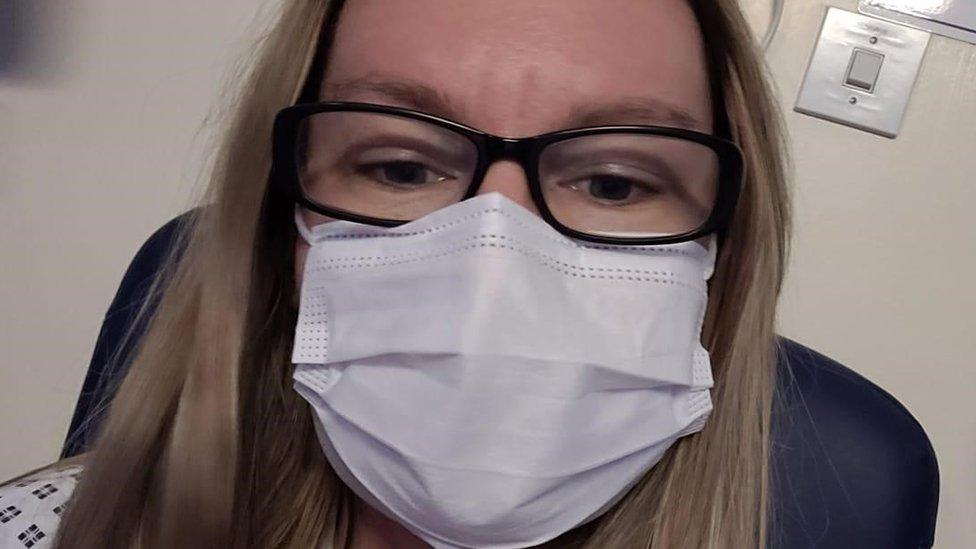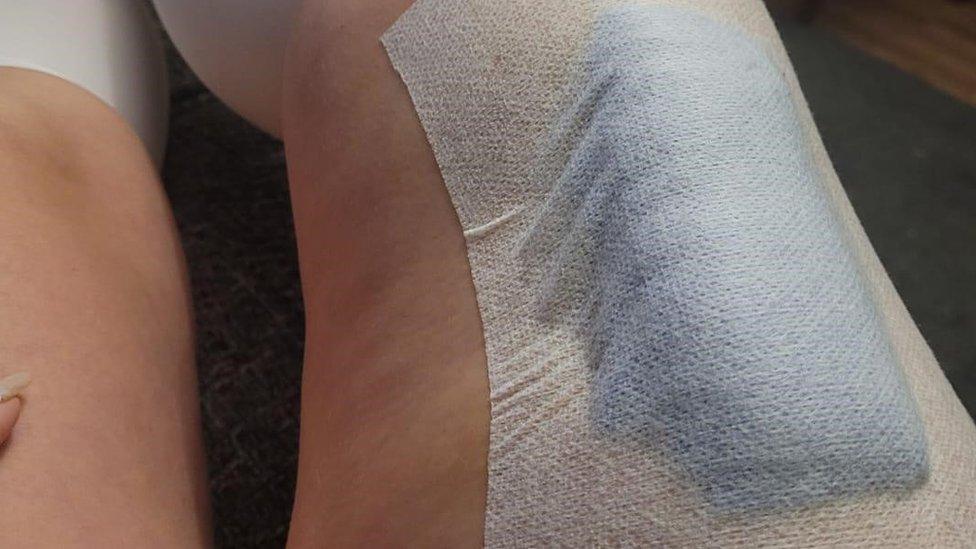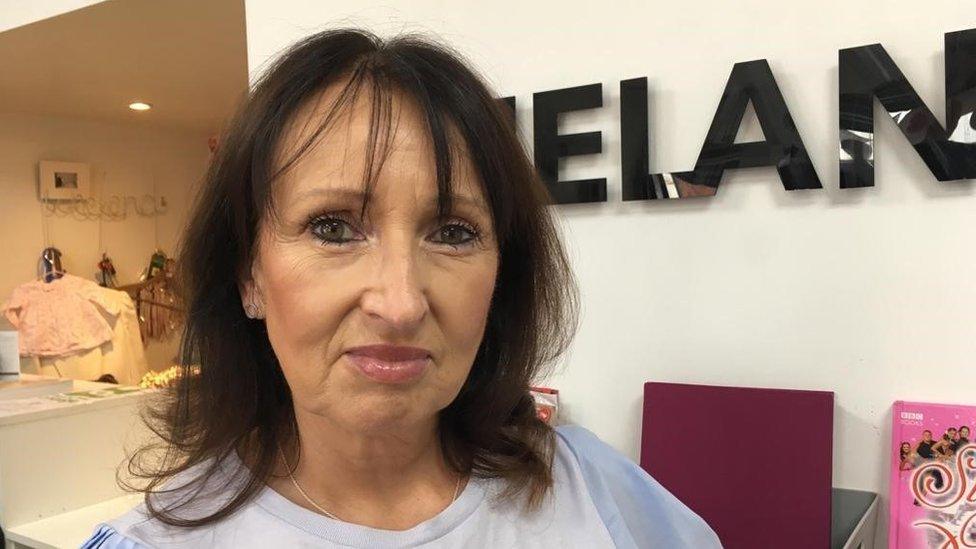Pandemic may be responsible for drop in melanoma diagnoses, says Staffordshire consultant
- Published

Jayne Reeves said she did not want to trouble her GP, then struggled to get an appointment before being diagnosed this year
Skin cancer specialists say they are concerned the pandemic has led to fewer people being treated after a drop in the number of melanoma diagnoses.
Wayne Jaffe, a consultant at University Hospital of North Midlands (UHNM), said his team were seeing people with more advanced stages of the disease.
Melanoma diagnoses fell by almost 30% nationally, between April and November 2020, figures show.
Charity Melanoma UK said it was vital people kept checking their skin.
Jayne Reeves, from Sheldon, in Birmingham, was diagnosed with melanoma - the most serious type of skin cancer - in February and did not see a GP initially during the pandemic, then struggled to get an appointment.
She said she had noticed last year a mole she had had on her leg since a child had become raised. She did not get medical help until December and her first scan took five months; delayed, she believes, due to the impact of Covid-19.

She has three-monthly scans to check the cancer has not spread
"I admit I didn't go to the GP at first," she said.
"I didn't want to trouble them what with the pandemic and stuff, but then I really struggled to get an appointment and had to send in some pictures."
She ended up having it removed as well as part of her quad muscle and some lymph nodes. She now has three-monthly scans to check the cancer has not spread.
"I'm really anxious and worried that it could show up on a scan," she added.
"Even though it hasn't yet, I've been told there's a chance it could."
The British Association of Dermatologists said there was "grave concern" about the number of patients potentially missed during the pandemic.

Consultant Wayne Jaffe said mixed messages may have caused people to not seek treatment
Plastic surgeon Mr Jaffe said: "I think people found it difficult to get to the GP, that is true.
"So [the message was] only contact your GP if you really think it's something serious, because everyone's struggling with the pandemic.
"So there were sort of mixed messages and people thought 'well it's only a mole, I'll leave it'.
"Members of our skin cancer MDT team do think we are seeing an increased number of patients with advanced disease, sometimes inoperable disease."
Every year about 2,300 people die from melanoma in the UK, but Cancer Research UK, said about 86% of cases were preventable.

Gillian Nuttall, founder of Melanoma UK, said if skin or moles changed then she advised people to get them checked
Gillian Nuttall, founder of Melanoma UK, said if moles changed then it was advisable to get them checked.
"We want everyone to look at their skin and notice differences," she said.
"If there's a blemish, something you're not happy about, chances are it needs looking at.
"Hopefully it's nothing but go and get it checked."

Follow BBC West Midlands on Facebook, external, Twitter, external and Instagram, external. Send your story ideas to: newsonline.westmidlands@bbc.co.uk, external